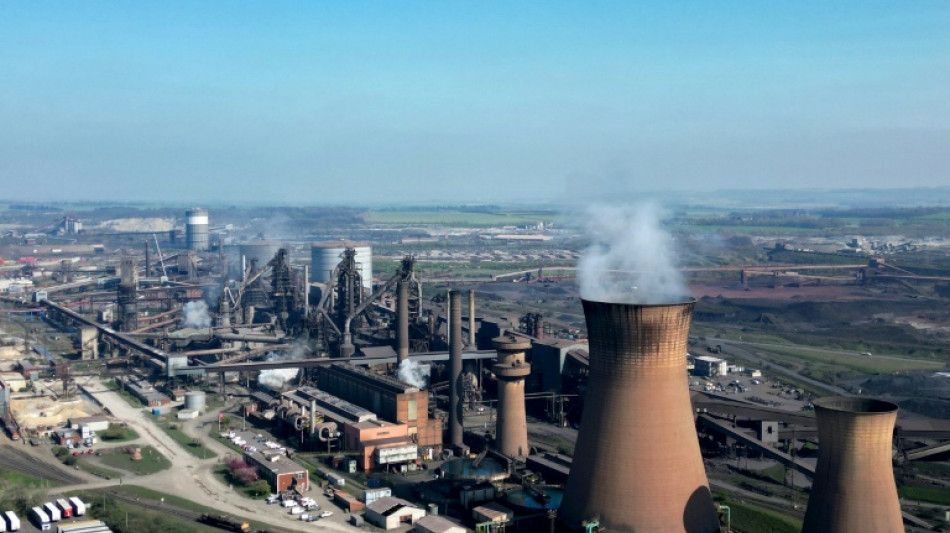
-
 Toppmoeller has ascendant Frankfurt challenging their limits
Toppmoeller has ascendant Frankfurt challenging their limits
-
Cambodia's Chinese casino city bets big on Beijing

-
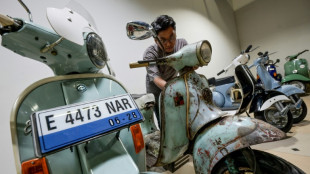 Vespa love affair: Indonesians turn vintage scooters electric
Vespa love affair: Indonesians turn vintage scooters electric
-
Europe seeks to break its US tech addiction

-
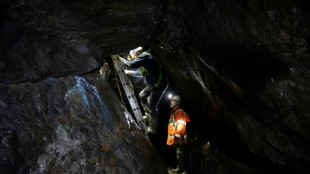 Long-abandoned Welsh mine revived as gold prices soar
Long-abandoned Welsh mine revived as gold prices soar
-
UK's top court to rule on how to define a 'woman'
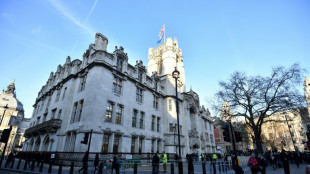
-
 WHO countries reach landmark agreement on tackling future pandemics
WHO countries reach landmark agreement on tackling future pandemics
-
Stocks struggle again as Nvidia chip curb warning pops calm
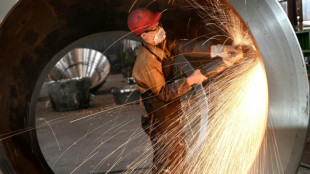
-
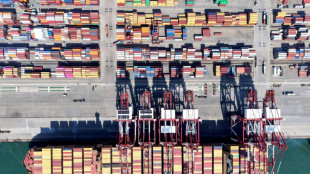 China's economy beats forecasts ahead of Trump's 'Liberation Day'
China's economy beats forecasts ahead of Trump's 'Liberation Day'
-
China's economy beat forecasts in first quarter ahead of Trump's 'Liberation Day'
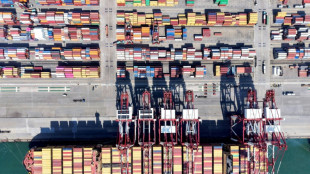
-
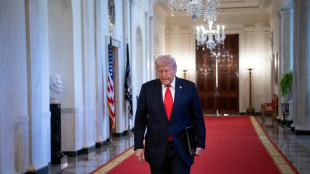 Trump orders critical minerals probe that may bring new tariffs
Trump orders critical minerals probe that may bring new tariffs
-
Onana faces date with destiny as Man Utd chase Lyon win
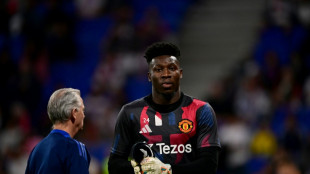
-
 Lessons in horror with Cambodia's Khmer Rouge tribunal
Lessons in horror with Cambodia's Khmer Rouge tribunal
-
Pandemic agreement: key points

-
 Paramilitaries declare rival government as Sudan war hits two-year mark
Paramilitaries declare rival government as Sudan war hits two-year mark
-
Landmark agreement reached at WHO over tackling future pandemics

-
 'La bolita,' Cuban lottery offering hope in tough times
'La bolita,' Cuban lottery offering hope in tough times
-
'Toxic beauty': Rise of 'looksmaxxing' influencers

-
 Facebook added 'value' to Instagram, Zuckerberg tells antitrust trial
Facebook added 'value' to Instagram, Zuckerberg tells antitrust trial
-
Trump signs order aimed at lowering drug prices
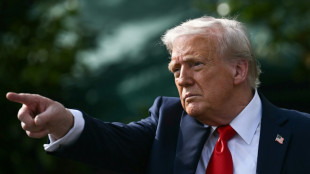
-
 Paramilitaries declare rival government as Sudan war enters third year
Paramilitaries declare rival government as Sudan war enters third year
-
Nvidia expects $5.5 bn hit as US targets chips sent to China

-
 Emery targets 'next step' for Aston Villa after Champions League heroics
Emery targets 'next step' for Aston Villa after Champions League heroics
-
'Gap too big' for Dortmund after first leg, says Guirassy

-
 Maradona's daughter says doctors could have prevented his death
Maradona's daughter says doctors could have prevented his death
-
Barcelona 'justified' semi-final spot despite Dortmund loss, says Flick

-
 'We thought the tie was over': Dembele admits PSG switched off against Villa
'We thought the tie was over': Dembele admits PSG switched off against Villa
-
Wine consumption falls heavily into the red

-
 Barca through to Champions League semis despite Guirassy hat-trick
Barca through to Champions League semis despite Guirassy hat-trick
-
Global stocks mixed amid lingering unease over trade war
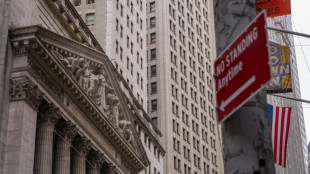
-
 PSG survive Aston Villa scare to reach Champions League semis
PSG survive Aston Villa scare to reach Champions League semis
-
Pandemic treaty talks fight late hurdles

-
 Trump resurrects ghost of US military bases in Panama
Trump resurrects ghost of US military bases in Panama
-
Family seeks homicide charges against owners of collapsed Dominican nightclub
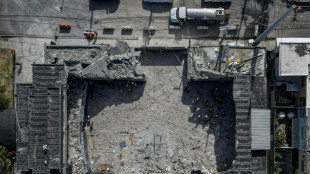
-
 Sudan paramilitary chief declares rival government two years into war
Sudan paramilitary chief declares rival government two years into war
-
Boeing faces fresh crisis with US-China trade war

-
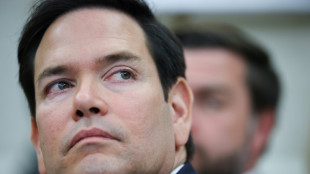 Trump eyes slashing State Department by 50 percent: US media
Trump eyes slashing State Department by 50 percent: US media
-
Canada offers automakers tariff relief, Honda denies weighing move
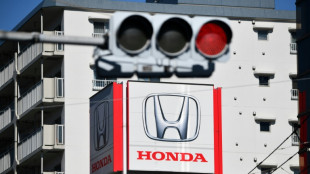
-
 Facebook added 'value' to Instagram, Zuckerberg says in antitrust trial
Facebook added 'value' to Instagram, Zuckerberg says in antitrust trial
-
French Ligue 1 clubs vote to break TV deal with DAZN

-
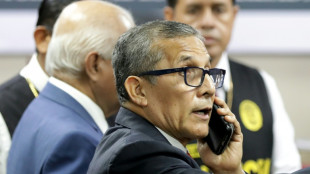 Peru court sentences ex-president Humala to 15 years for graft
Peru court sentences ex-president Humala to 15 years for graft
-
Sumy buries mother and daughter victims of Russian double strike

-
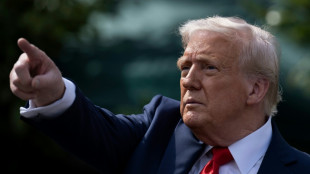 Trump says ball in China's court on tariffs
Trump says ball in China's court on tariffs
-
Kane urges Bayern to hit the mark against Inter in Champions League

-
 Trump ramps up conflict against defiant Harvard
Trump ramps up conflict against defiant Harvard
-
Arteta feeding Arsenal stars 'opposite' of comeback message

-
 France's Macron honours craftspeople who rebuilt Notre Dame
France's Macron honours craftspeople who rebuilt Notre Dame
-
Watkins left on Villa bench for PSG return

-
 Chahal stars as Punjab defend IPL's lowest total of 111 in 'best win'
Chahal stars as Punjab defend IPL's lowest total of 111 in 'best win'
-
French swim star Marchand considered taking year-long break


China warns UK against 'politicising' steel furnaces rescue
Beijing on Monday warned against "politicising" the rescue of Chinese-owned British Steel, as the UK government raced to secure raw materials to keep the country's remaining steelmaking blast furnaces running.
Prime Minister Keir Starmer's government has swooped in to prevent the closure of British Steel's main plant in Scunthorpe, northern England, after its owner, the Chinese group Jingye, halted orders of coking coal and iron ore.
The Labour government, which stopped short of nationalising British Steel over the weekend, is trying to buy the raw materials to keep the plant running and hoping to find a new private investor for the plant.
Jingye bought British Steel in 2020 and says it has invested more than £1.2 billion to maintain operations, but that it has been losing around £700,000 per day.
- China tensions -
"Towns like Scunthorpe need industries," consultant radiographer Nick Barlow, 36, who has lived in the town for six years, told AFP.
"Pretty much everyone in Scunthorpe knows somebody that's affiliated to the steel works. It's how the town was formed. everything sort of revolves around it. It's the heart of the town."
Former steelworker Jim Kirk, 66, worried that any closure of the plant would leave Scunthorpe a "ghost town" accusing Beijing of trying to "run it down, stop it so that they can import their cheap steel over here".
But a Chinese foreign ministry spokesman said Monday the UK should "avoid politicising trade cooperation or linking it to security issues, so as not to impact the confidence of Chinese enterprises in going to the UK".
Some opposition British MPs accused Beijing of interference -- with Christopher Chope of the main opposition Conservative party accusing Jingye of "industrial sabotage".
Starmer's spokesman on Monday said Downing Street is "not aware of any deliberate acts of sabotage" at the Scunthorpe steelworks.
He added the government is "confident in securing the supply of materials needed" to keep running the two blast furnaces at the plant -- the last in the UK which makes steel from scratch.
He said materials would reach the plant in the "coming days", as restarting the furnaces once they go out is extremely difficult.
Other firms, including Tata and Rainham Steel, have offered to help secure supplies, government minister James Murray told Times Radio.
- Jobs threatened -
Failure to secure enough supplies to keep the furnaces running could seriously damage the plant -- and risk making Britain the only Group of Seven country without virgin steelmaking capacity needed for everything from railways to bridges.
"If we hadn't acted, the blast furnaces were gone and in the UK primary steel production would have gone," Business Secretary Jonathan Reynolds said Sunday.
He added Jingye had turned down an offer of some £500 million ($658 million) to buy materials, instead requesting more than twice that amount with few guarantees the furnaces would stay open.
The government saw the possible closure of Scunthorpe as a threat to Britain's long-term economic security, given the decline of the UK's once robust steel industry -- and the threatened loss of some 2,700 jobs.
Reynolds said the UK had been "naive" to allow its steel industry to be bought by the Chinese company, and that he "wouldn't personally bring a Chinese company into our steel sector".
China possesses mostly minority interests in a number of key UK industries, from water to energy and Heathrow airport, giving rise to security concerns and occasional spats.
"The purchase of British Steel by a Chinese company shows how intricately market conditions, strategic corporate decisions, and the quest for investment in a failing sector interact," Patrick Munnelly, a strategist at broker Tickmill, told AFP.
David Henig, an analyst at the European Centre for International Political Economy, said "economic security challenges" affected all of Europe.
"There can also be issues with nationally owned companies, so this is very much about governments having to monitor their economies and respond where necessary."
Despite the fallout over British Steel, Starmer's administration has been at pains to improve relations with Beijing, with several high-ranking ministers holding bilateral talks in hopes of spurring economic growth.
E.Burkhard--VB
